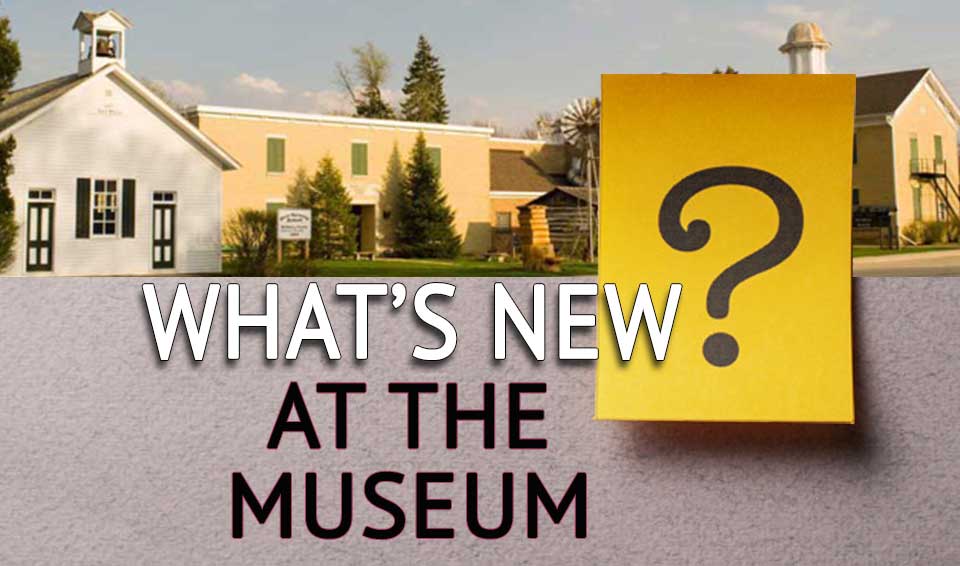What's New? Quiz answers
New Exhibits
“Travel by Horse & Buggy”: To the first settlers of McHenry County, traveling the “roads” in the mid-1830s in their cumbersome horse- or ox-drawn wagons was a challenge. Learn how the first settlers tamed the prairie to build the county’s first roads. Explore how important the role of horses was to pioneer life and the blacksmith and harness maker professions.
“Riding the Rails”: During the mid-19th century, McHenry County’s unpaved roads did not adequately meet the county’s transportation needs. The roads were dusty in dry weather and nearly impassibly muddy in wet. In time, McHenry County depended on the railroad for transporting both people and goods. The railroad rapidly became an economic engine that influenced the landscape of McHenry County. Learn how Harvard became a railroad town and the history behind Crystal Lake’s three train depots.
“Call to Arms”: McHenry County had close to 20,000 inhabitants within its boundaries when Fort Sumter was fired upon April 12, 1861. This act signaled the start of the Civil War. McHenry County’s citizens responded to President Abraham Lincoln’s call for volunteers by sending a total of 2,533 men to the Union Army. Learn about soldiers in the 95th and 15th Illinois Infantry, how McHenry County supported the northern home front, and what life was like for soldiers returning home after the Civil War.
“The Fight for Illinois Suffrage”: On June 10, 1919, Illinois was one of the first states to vote in favor of the 19th Amendment, giving women the right to vote. Surprisingly, McHenry County newspapers took almost no notice of that ratification. The truth of the matter is that Illinois women were, since 1913, free to vote in township and municipal elections. The fight for suffrage in Illinois involved the support of county chapters of the Illinois “Anti-Saloon League” and the Women’s Christian Temperance Union. In McHenry County, both groups had extremely active chapters led by women of great note. Learn how women, like Marengo’s Elizabeth Shurtleff, worked alongside Illinois Suffragette Grace Wilbur Trout to promoted women’s suffrage in Illinois.
•••
Museum Quiz Answer Key
1) False. He came from Ireland and the reason was to work construction in New York. He moved to Illinois with his wife 3 years later.
2) True.
3) False. The company made architectural terra cotta, glazed exterior tile for buildings and Teco pottery.
4) False: We never recognized the secession.
5) False. The California Gold Rush was over by the mid-1800s. The safe, designed to store currency, dates from 1889.
6) True
7) True. Woodstock was known as Centerville at the time because it was located in the center of what was then McHenry County.
8) False. There were just five students in that graduating class.
9) False. She is said to have jumped off a balcony.
10) True
 © 2025 MCHS- All Rights Reserved.
© 2025 MCHS- All Rights Reserved.









